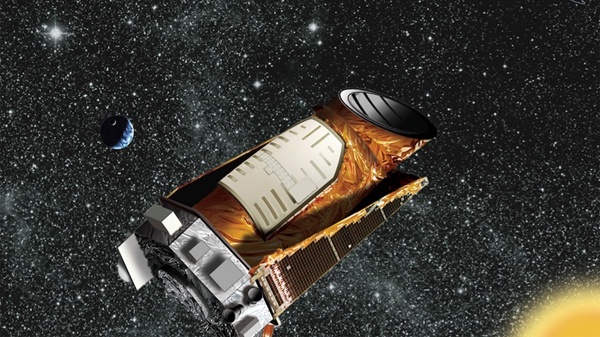
A team of space scientists has captured new images of a volcanic plume on Jupiter’s moon Io on Dec. 21, during winter solstice, four of Juno’s cameras captured images of the Jovian moon Io, the most volcanic body in our solar system.

A fresh image from NASA’s New Horizons spacecraft released Tuesday showed the mission’s distant flyby target a billion miles beyond Pluto — nicknamed Ultima Thule — has an elongated shape.

More than 41 years and nearly 18 billion km from Earth, NASA’s Voyager 2 probe has finally passed beyond the protective bubble defined by the Sun’s magnetic fields and solar wind, joining its sistership Voyager 1 in the interstellar space.

The Chang’e 4 mission lifted off Friday 18:23 GMT (1:23 p.m. EST) from China’s Xichang space center, kicking off a journey that will culminate in an attempt in early January to touch down on the far side of the Moon for the first time.

For the first time in history, we can hear the wind on Mars. With its InSight Lander NASA provided a version of the recording shifted up in pitch, which pulls some of the otherwise-inaudible infrasound into hearing range.
It will map and study the tiny world in great detail, eventually returning a piece of Bennu to Earth in 2023. The discoveries of OSIRIS-REx will shed light on our solar system's ancient history.

InSight spacecraft plunged into the rarefied atmosphere of Mars at a speed of more than 12,000 mph Monday and braked to a gentle touchdown, setting the stage for a two-year surface mission to probe the planet’s deep interior.

Dawn was launchd on 27 September 2007. The spacecraft found that asteroid Vesta is the parent of a specific variety of meteorites found on Earth. It also discovered that dwarf planet Ceres was once an ocean world.

No human-made object has gotten this close to the Sun. The Parker Solar Probe broke a 22 year old record by getting to within 43 million km of the Sun.

NASA's planet-hunting telescope has run out of fuel after a nine-year mission that found more than 2,600 planets orbiting other stars along with thousands of candidate worlds.

The project is only the second, after NASA’s MESSENGER mission, to attempt putting a spacecraft into orbit around the solar system’s innermost planet and is one of the most technically challenging missions.

Japanese scientists have praised "the world’s first rover to land on the surface of an asteroid." The Hayabusa2 is expected to land a German-made lander carrying a larger rover in October.

NASA recently released a 360-degree panoramic image based on images taken by the Curiosity rover, which showed its latest drilling site.

Two years after launch, NASA’s OSIRIS-REx spacecraft has snapped its first pictures of asteroid Bennu, setting the stage for a cautious approach designed to put the probe in orbit around its quarry on New Year’s Eve.

The US space agency launches a probe that aims to travel closer to the Sun than ever before.